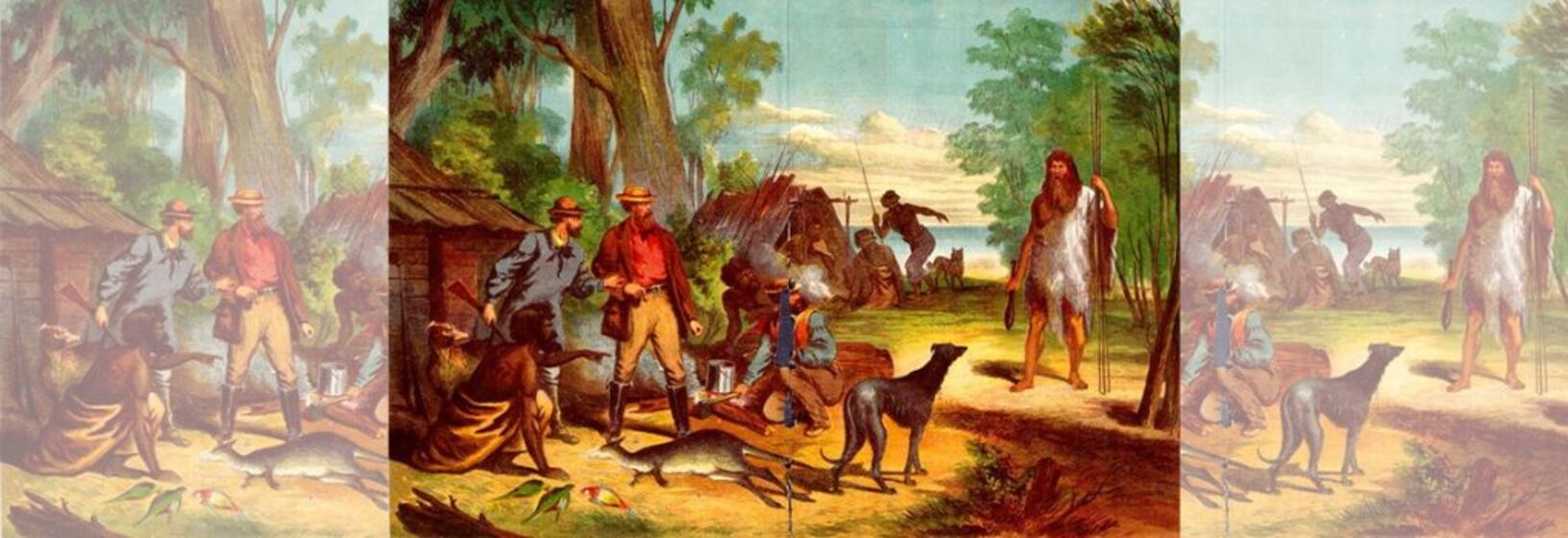Essay - Buckley's Chance
After convict William Buckley escaped from Victoria’s Sullivan Bay settlement he wandered alone in the wilderness for weeks. Eventually he was discovered by the Wathaurang people who initially thought this pale, 198cm giant carrying a spear was the ghost of one of their leaders.
Buckley had arrived with more than 300 soldiers, settlers and convicts at Port Phillip Bay in 1803, aged 23. Born in Cheshire, England he’d served in the Napoleonic Wars where he was wounded in action, before being convicted of receiving stolen goods (a roll of cloth) and sentenced to transportation for life in 1802.
The attempt to settle Port Phillip Bay failed and the settlement at Sullivan Bay near Sorrento (Victoria’s first official European settlement) was abandoned after a few months. As the settlers prepared to leave for Tasmania, Buckley escaped with 2 other convicts. But after reaching the other side of Port Phillip Bay his tired, hungry and scared companions turned back for Sullivan Bay.
Buckley would not give up and he wandered alone, eating shellfish and berries for several weeks before he was befriended by the Wathaurang people. In a lucky coincidence, the tall, pale Buckley, who carried a spear he’d found at a grave, was initially thought to be a reincarnation of a Wathaurang leader, who was also very tall. Over the next 32 years Buckley lived with the Wathaurang, learnt their language and customs, married and had a daughter.
When Batman’s colonising party arrived in 1835, Buckley finally emerged to meet them. At first he couldn’t remember his own language or name but identified himself by the WB tattooed on his arm. He tried to work as an intermediary between the settlers and the aborigines and was employed as an interpreter to resolve disputes. But he felt he wasn’t trusted by either side. After less than 2 years he left for Hobart where he died after an accident in January 1856.
Buckley’s story has been reinterpreted many times over the years. He was a private and cautious man, and gave only 2 accounts of his life. Many of the images of the first European settlement on the banks of the Yarra River include Buckley as a pale giant clad in animal skins, approaching the newcomers.
His name lives on in Australian slang with the ironic saying “you’ve got Buckley’s chance” or “Buckley’s hope”. It was combined with the name of a popular former Melbourne department store Buckley’s and Nunn, to mean very little or no chance—despite the fact the real Buckley took his impossible chance for freedom and survived.


